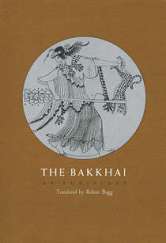The modern cheap and fertile press, with all its translations, has done little to bring us nearer to the heroic writers of antiquity. They seem as solitary, and the letter in which they are printed as rare and curious, as ever. Thoreau, Reading, Walden.
For weeks, I’ve heard the pounding. Sometimes it’s the sudden pick-up of my heart, when a new vulgarity arrives from our president-(sort of)elect; other times, it’s the full-throated narcissism of another me-ist intent on unmooring us from any collective will to do good. Such drums have kept me awake at night, distracted me from the day’s work. Even when I walk to the woods, as I do daily, their thrumming sometimes insists.
When in search of larger wisdom, Henry Thoreau, it seems to me, turned often to the ancient Greeks, famously keeping, for example, a copy of The Iliad by his bed while at the pond. When it comes to apprehending the pulse of human behavior, they’ve not yet been surpassed. And in this loud run-up to Friday’s inauguration (I note the word “augur” embedded), I’ve found myself returned to the strangeness of a play I’ve read many times, Euripides’, The Bakkhai.
“No more drums,” cries Pentheus, the newly-crowned, 17-year-old king of Thebes, in this ancient play about madness. Here, the king (inexperienced and untested) gets a visit from Dionysos, himself a new god and intent on gaining followers, but one who already knows the power of impulse in human affairs. Dionysos assumes the disguise of a 17-year-old priest, and so joins Pentheus in a late-adolescent contest for control. It is an unequal match-up, young authoritarian versus god of impulse, and everyone but Pentheus can see that the priest is something else, something otherworldly. This, the people of Thebes can see, will not end well. For their king, and so, for them.
And it doesn’t, as Dionysos chooses the particularly cruel avenue of Pentheus’ desires – scarcely understood by the king – as a way to lure him into a trap, where he is torn limb from limb by a pack of women, led by his mother. Pentheus is such a hothead, so intent on being (becoming) “the man” that one has to work at finding sympathy for him. Still, to be shredded by mother…well, at least a tear or two there, if not a primary fear. And Dionysos is implacable force, intent on being worshipped; little else matters, including his own followers, who have left their homes for the promise of joy and a better life, and now find themselves stranded in a foreign land.
It has taken me some time to sort all these drums and drummings, but now I see that Euripides has fashioned a play – his last, some think – that cautions against ungoverned impulse (within and without), and it has returned to my mind because we seem to be entering an era where such impulse is the loudest of tweets, a form that is all impulse. The president-elect (sort of) seems a joining of both 17-year-olds in The Bakkhai, a colossal neediness for control and regard.
The play does not end well for Thebes either. Shorn of its governing force by Pentheus’s death, it is open to the rest of the world’s ill will and predation. And Dionysos, intent on himself, is ready to move on – where can I go next to spread the joy of me, and get worship in return?
Henry Thoreau used to listen to celebrations of independence and self in Concord village at a distance; from Walden, the volleys of expressive cannons sounded like “pop” guns, or toys. Thoreau also revered the Greeks, though I’ve not found indication that he read The Bakkhai, even as I suspect he must have. But I wonder if any metaphorical pond lies at enough distance from today’s distant tweets and the roar of self-worship? Or, if, unlike the Thebans, it’s time to plunge in and roar back at this odd amalgam, this president of impulse?
Reader’s Note: This play repays reading many times over, and Robert Bagg’s translation is very fine. When I checked a while ago, it was out of print, but I have found it in used bookstores. Also, new translations continue to appear; it is truly a timeless, or well timed play.

